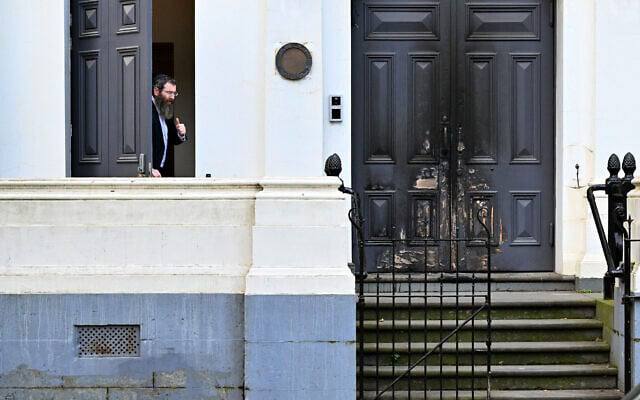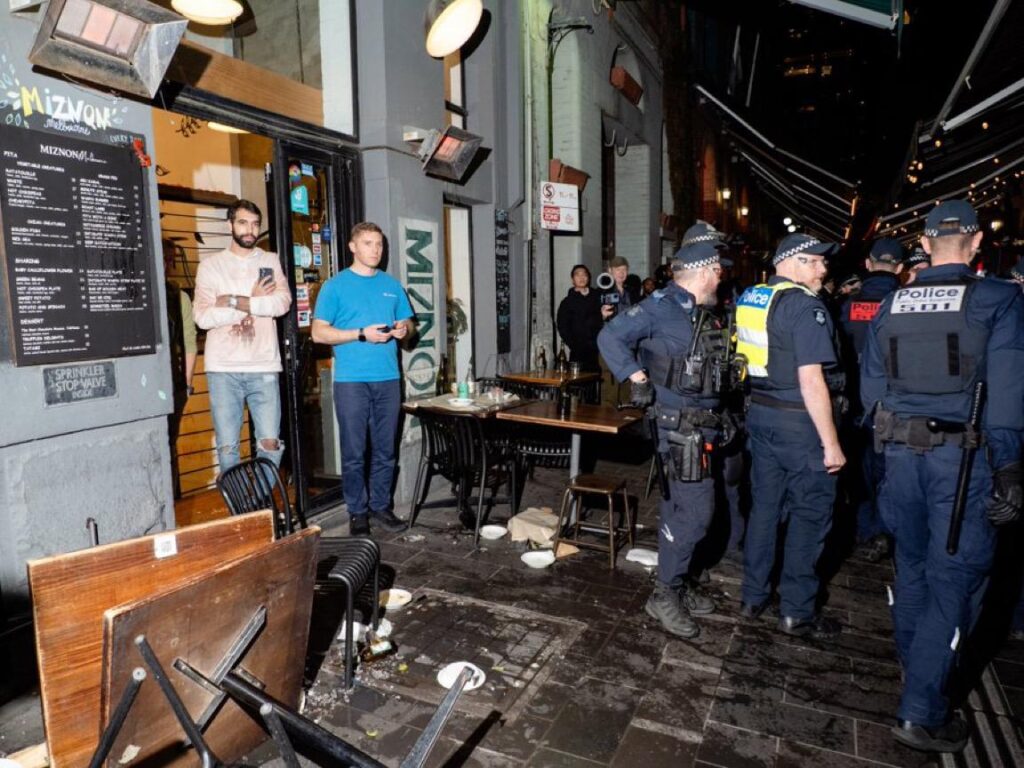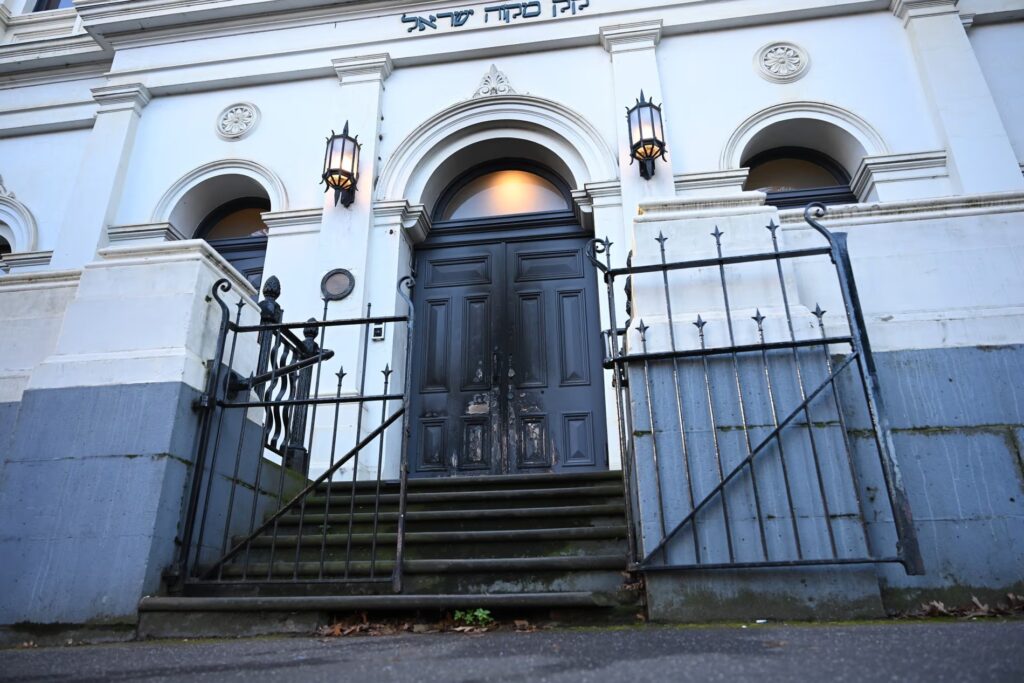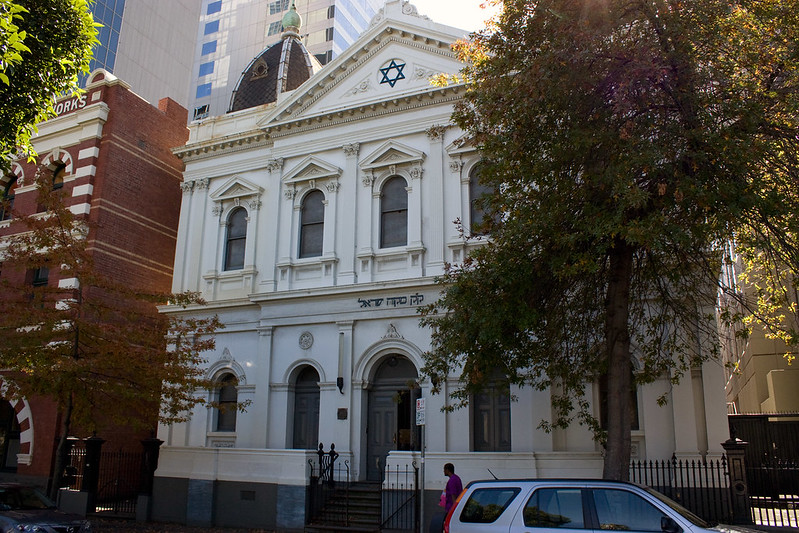UPDATES
Lessons from Mumbai
December 3, 2008 | AIJAC staff
Update from AIJAC
December 3, 2008
Number 12/08 #01
There has been so much material in the media generally about the terrorist attack in Mumbai that it would be superfluous to provide the same sorts of news and commentary here. Therefore, this Update is devoted to analysing elements of the attack, and the lessons that can be drawn from it, which were less prevalent in the general coverage.
First up, Israeli strategic specialist David Altman argues that the Mumbai attack represents a shift in the approach by major terrorist groups. He says terrorists moved originally from operations like hijacking airplanes, designed primarily to get attention, to suicide bombings, which underline determination, and and are now emphasising the development of terrorist armies, with all the capabilities and training of regular armies, but devoted to using terrorist methods. He suggests some new approaches needed to deal with this increasingly threatening form of terrorism. For his full argument, CLICK HERE. More comment on the implications of the use of low-tech, but highly coordinated, methods in this attack comes from terrorism commentators Max Boot and James Robbins, and Amos Harel of Haaretz.
Next up, American columnist and author Mark Steyn focuses on the ideological warfare element of countering terrorist attacks like the one in India. He points out that it doesn’t matter whether the attackers were formally part of al-Qaeda or merely inspired by it, the key issue is that there is an Islamist ideology being “seeded” around the planet which inspires terrorism like this, and that you cannot stop terrorism unless you counter the spread of that ideology “among the general Muslim population.” He also points out the severe difficulties in doing this if you adopt what is essentially, “a law enforcement approach” to terrorist attacks like this one. For his complete argument, CLICK HERE. An additional argument emphasising the ideological side of the “war on terror” comes from American terrorism expert Steve Emerson, who says we are losing in this critical sphere, while American officials Christian Whiton and Kristofer Harrison suggest ways the US and its allies can do better.
Finally, we offer readers an inspiring call-to-arms for moderate Muslims by Aijaz Zaka Syed of the Dubai-based Khaleej Times. Syed explains his own discomfort in dealing with his non-Muslim colleagues following incidents like Mumbai, and argues that Muslim leaders have been too late and done too little in dealing with violent extremism. His cri de coeur is “How many innocents have to die in the name of Islam before Muslim leaders and countries take effective action to deal with the nuts, who are out to destroy us all with their nihilistic cult?” For the complete piece, CLICK HERE. Other Muslims speaking out online against terrorism (and often being shouted down by pro-terrorist voices) are reported here. More Arab media reactions to the Mumbai attacks are described here. Meanwhile, jihadists are reportedly viewing Mumbai as a great victory.
Readers may also be interested in:
- Some good comment on India’s counter-terrorism shortcomings from Indian-born journalist Sadanand Dhume, who recently published a book on Indonesian Islamist extremism, and offers lessons from the Indonesian experience.
- The always insightful Prof. Barry Rubin discusses parallels between India’s problems with cross-border terror from Pakistan and Israel’s situation, and offers some lessons to India from the Israeli experience.
- No less than three good Jerusalem Post editorials on Mumbai and its implications – here, here and here.
- Israeli coverage of the Mumbai attack naturally focused a fair amount of attention on the fate of the staff murdered at Mumbai’s Chabad House, especially Rabbi Gavriel Holtzberg and his wife Rivka, as well as the heroism of Sandra Samuel, the nanny who saved their two-year-old son, Moshe.
- There have been many commentators remarking on what it says about the terrorists that they went out of their way to target the Chabad House Jewish outreach centre – see here, and here (and for those who have not seen David Aaronovitch in today’s Australian, here). Meanwhile, former Middle East correspondent Tom Gross comments on the apparent determination of the BBC and some other outlets to minimise discussing the Jewish centre attack or labelling the whole operation “terrorism”.
- These murders have also inspired a number of good appreciations of Chabad and the work that those like the Holtzbergs do – for instance, from David Horovitz, editor of the Jerusalem Post, Hollywood blogger Roger Simon, and American writer David Klinghoffer.
- A report from India that while many of the victims were tortured, the Jewish victims of the attack underwent particularly severe torture before they were killed.
- Israeli reporter Alex Fishman examines whether Israel is prepared for the sort of coordinated multi-site attack which occurred in Mumbai, in a two part series, here and here.
- Israeli author Lela Gilbert and American editor Marty Peretz both comment on the role of religion in this attack.
- There have been a number of interesting articles debunking some of the seemingly reflexive attempts to explain the Mumbai attacks via American foreign policy or the troubles of India’s Muslims, see for instance here, here, here and here.
- Though it is little reported in Australia, rockets continue to be fired into Israel from Gaza virtually on a daily basis (see for instance here). Recent attacks have hit a home in a kibbutz and the centre of the much-bombarded town of Sderot.
Terror lesson in Mumbai
India terror offensive proves that West’s war doctrine must be modified
David Altman
Ynet.com
Published: 11.29.08,
The terror offensive in Mumbai must prompt decision-makers and assessment agencies to realize that the common perception regarding terror activity is flawed and anachronistic.
The world views terror incidents as sporadic, high-profile, and one-time events. They arouse fury, anger, and pain, yet they do not undermine the power of the state where terrorism takes place. Years ago, when Palestinian terrorists were blowing up airplanes, a terror leader was asked about the benefit achieved by his men while perpetrating horrifying incidents where hundreds of innocents are murdered. His response was as follows: “I get full attention – in the two minutes where the entire world’s attention is directed at me, I can express my message regarding the injustice done to me, and this is enough for me.”
Ever since that time, terrorism underwent a series of changes. The Vietnam War changed the conception of terror organizations and made them think that a terrorist army was not only meant to sting, but ultimately it also had the power to win. In a meeting held at the end of the war between representatives of the Palestine Liberation Organization and North Vietnamese General Giap, the PLO men congratulated him on his great victory and asked when he thought terror groups would be able to defeat Israel. He responded with one word: Never. When he was asked why, he replied: because of lack of determination.
Some observers believe this was one of the turning points for Islamic terror groups, as it prompted them to build an educational system that lauded suicide, thereby laying the groundwork for suicide terrorism. Their immediate interpretation was that determination meant willingness to offer personal sacrifice, and that the more people prove their willingness to die, the greater their determination would become, ultimately resulting in victory. Eventually, terror leaders realized that suicide bombers have a demoralizing effect and can create grave damage and prompt a government shakeup – for example, the attack on the Madrid subway system in 2004 that prompted a change of government in Spain.
Skilled terror armies
However, terrorism upgraded itself into combat units. The Hizbullah terror organization does not premise its power on sporadic terror incidents. By now it has accumulated 42,000 rockets aimed at undertaking military terrorism and causing mass casualties, while challenging Israel militarily.
For a while now, Hamas has dealt not only with suicide terrorists, but rather, it is building an offensive arsenal of continuously upgraded rockets, while also forming military units whose modus operandi is wholly different than that of terror cells, and training a terror army that is also involved in military activity.
This conception has also been applied by the Iranian army that alongside combat units maintains the Revolutionary Guards, which in turn nurture paramilitary organizations combining terror and anti-terror activity with military activity. This is combined with a public relations war, which is the secret weapon of fundamentalist organizations and where they are more powerful than all Western states.
Al-Qaeda too has shifted from sporadic terror to military terror, and its operations are more complex and integrate more elements. They reflect the face of future warfare, which combines local terror with wide-scale terror that potentially includes biological and chemical weapons, and aspires to achieve nuclear terror using combat units operating differently than terror groups that attempt to undertake a local one-time attack.
India constitutes a broad testing ground for terror forces aiming to take over a large city while using military terrorism. The country constitutes a tool for learning terror’s new conceptions as they manifest themselves at this time, in the face of the conclusions of the war in Iraq, the war in Afghanistan, and terror attacks in Pakistan.
Therefore, the war on terror’s doctrine must change. The old-time suicide bombers mostly operated alone or in small groups, in order to prove their power and hurt the enemy as much as is possible. Yet their time has passed.
Today, we see the emergence of a dark, new, and different army, with new branches that include all the components of a military, yet still utilize the terror doctrine. The advantage of terrorist armies is first and foremost the fact they are not subjected to any law or international convention. They do not face any pressure and they are not accountable to anyone.
They tie the hands of the responding force, which is the only side subjected to conventions pertaining to human rights, war captives, and the targeting of civilians.
Every terror event makes it increasingly clear that the danger to the stability of societies and regimes is much greater than we thought. The Mumbai events must serve as a turning point in the way we address terror armies. This is no longer a conventional war. The war codes formulated in the wake of World War II are no longer relevant. Instead, an international anti-terror force must be created; this force must be specialized, it must study the new threat, and it must be able to provide an immediate response by forces trained especially to that end.
Dr. David Altman is the deputy chairman of the Center for Strategic Dialogue at the Netanya Academic College
————————————————————————
It’s Not the Cold War
Updating strategy to fight the ideology
By Mark Steyn
National Review, November 29, 2008, 9:00 a.m.
When terrorists attack, media analysts go into Sherlock Holmes mode, metaphorically prowling the crime scene for footprints, as if the way to solve the mystery is to add up all the clues. The Bombay gunmen seized British and American tourists. Therefore, it must be an attack on Westerners!
Not so, said Newsweek’s Fareed Zakaria. If they’d wanted to do that, they’d have hit the Hilton or the Marriott or some other target-rich chain hotel. The Taj and the Oberoi are both Indian owned, and popular watering holes with wealthy Indians.
Okay, how about this group that’s claimed credit for the attack? The Deccan Mujahideen. As a thousand TV anchors asked on Wednesday night, “What do we know about them?”
Er, well, nothing. Because they didn’t exist until they issued the press release. “Deccan” is the name of the vast plateau that covers most of the triangular peninsula that forms the lower half of the Indian sub-continent. It comes from the Prakrit word “dakkhin, which means “south.” Which means nothing at all. “Deccan Mujahideen” is like calling yourself the “Continental Shelf Liberation Front.”
Okay. So does that mean this operation was linked to al-Qaeda? Well, no. Not if by “linked to” you mean a wholly owned subsidiary coordinating its activities with the corporate head office.
It’s not an either/or scenario, it’s all of the above. Yes, the terrorists targeted locally owned hotels. But they singled out Britons and Americans as hostages. Yes, they attacked prestige city landmarks like the Victoria Terminus, one of the most splendid and historic railway stations in the world. But they also attacked an obscure Jewish community center. The Islamic imperialist project is a totalitarian ideology: It is at war with Hindus, Jews, Americans, Britons, everything that is other.
In the ten months before this week’s atrocity, Muslim terrorists killed over 200 people in India and no-one paid much attention. Just business as usual, alas. In Bombay, the perpetrators were cannier. They launched a multiple indiscriminate assault on soft targets, and then in the confusion began singling out A-list prey: Not just wealthy Western tourists, but local orthodox Jews, and municipal law enforcement. They drew prominent officials to selected sites, and then gunned down the head of the antiterrorism squad and two of his most senior lieutenants. They attacked a hospital, the place you’re supposed to take the victims to, thereby destabilizing the city’s emergency-response system.
And, aside from dozens of corpses, they were rewarded with instant, tangible, economic damage to India: the Bombay Stock Exchange was still closed on Friday, and the England cricket team canceled their tour (a shameful act).
What’s relevant about the Mumbai model is that it would work in just about any second-tier city in any democratic state: Seize multiple soft targets and overwhelm the municipal infrastructure to the point where any emergency plan will simply be swamped by the sheer scale of events. Try it in, say, Mayor Nagin’s New Orleans. All you need is the manpower. Given the numbers of gunmen, clearly there was a significant local component. On the other hand, whether or not Pakistan’s deeply sinister ISI had their fingerprints all over it, it would seem unlikely that there was no external involvement. After all, if you look at every jihad front from the London Tube bombings to the Iraqi insurgency, you’ll find local lads and wily outsiders: That’s pretty much a given.
But we’re in danger of missing the forest for the trees. The forest is the ideology. It’s the ideology that determines whether you can find enough young hotshot guys in the neighborhood willing to strap on a suicide belt or (rather more promising as a long-term career) at least grab an AK and shoot up a hotel lobby. Or, if active terrorists are a bit thin on the ground, whether you can count at least on some degree of broader support on the ground. You’re sitting in some distant foreign capital but you’re minded to pull off a Bombay-style operation in, say, Amsterdam or Manchester or Toronto. Where would you start? Easy. You know the radical mosques, and the other ideological-front organizations. You’ve already made landfall.
It’s missing the point to get into debates about whether this is the “Deccan Mujahideen” or the ISI or al-Qaeda or Lashkar-e-Taiba. That’s a reductive argument. It could be all or none of them. The ideology has been so successfully seeded around the world that nobody needs a memo from corporate HQ to act: There are so many of these subgroups and individuals that they intersect across the planet in a million different ways. It’s not the Cold War, with a small network of deep sleepers being directly controlled by Moscow. There are no membership cards, only an ideology. That’s what has radicalized hitherto moderate Muslim communities from Indonesia to the Central Asian stans to Yorkshire, and coopted what started out as more or less conventional nationalist struggles in the Caucasus and the Balkans into mere tentacles of the global jihad.
Many of us, including the incoming Obama administration, look at this as a law-enforcement matter. Bombay is a crime scene, so let’s surround the perimeter with yellow police tape, send in the forensics squad, and then wait for the DA to file charges. There was a photograph that appeared in many of the British papers, taken by a Reuters man and captioned by the news agency as follows: “A suspected gunman walks outside the premises of the Chhatrapati Shivaji Terminus or Victoria Terminus railway station.” The photo of the “suspected gunman” showed a man holding a gun. We don’t know much about him — he might be Muslim or Episcopalian, he might be an impoverished uneducated victim of western colonialist economic oppression or a former vice-president of Lehman Bros embarking on an exciting midlife career change — but one thing we ought to be able to say for certain is that a man pointing a gun is not a “suspected gunman” but a gunman. “This kind of silly political correctness infects reporters and news services world-wide,” wrote John Hinderaker of Powerline. “They think they’re being scrupulous — the man hasn’t been convicted of being a gunman yet! — when in fact they’re just being foolish. But the irrational conviction that nothing can be known unless it has been determined by a court and jury isn’t just silly, it’s dangerous.”
Just so. This isn’t law enforcement but an ideological assault — and we’re fighting the symptoms not the cause. Islamic imperialists want an Islamic society, not just in Palestine and Kashmir but in the Netherlands and Britain, too. Their chances of getting it will be determined by the ideology’s advance among the general Muslim population, and the general Muslim population’s demographic advance among everybody else.
So Bush is history, and we have a new president who promises to heal the planet, and yet the jihadists don’t seem to have got the Obama message that there are no enemies, just friends we haven’t yet held talks without preconditions with. This isn’t about repudiating the Bush years, or withdrawing from Iraq, or even liquidating Israel. It’s bigger than that. And if you don’t have a strategy for beating back the ideology, you’ll lose.
Whoops, my apologies. I mean “suspected ideology.”
© 2008 Mark Steyn
Back to Top
————————————————————————
No Time to Hide for Muslims
Aijaz Zaka Syed (View from Dubai)
Khaleej Times, 30 November 2008
Watching the terror nightmare unfold in Mumbai over the past three days with me on television, my kids have repeatedly asked me: “Who are these terrorists and why are they doing this?” And every time I wished I could offer them a convincing answer.
What could I tell them? For one, I was equally clueless why these guys had taken over India’s financial and cultural capital and were targeting people who had nothing to do with them and had done nothing to harm them.
For two, I was too ashamed to tell them these guys were ostensibly Muslims and came from a country that was created in the name of Islam.
At work, while my colleagues went about covering the madness in Mumbai and laying out special pages with the images of the incredibly beautiful hotel, Taj, with its Islamic arches and domes, go up in smoke, I find it hard to look my colleagues in the eye.
And this happens all the time. Every time innocents are targeted in the name of Islam around the world, one can’t face one’s non-Muslim friends and colleagues. I feel like burying myself in the ground. Growing up in a religious family, one never thought one would see the day when being a Muslim could be a source of shame.
A distraught friend who has devoted her life to speaking and fighting on behalf of Arabs and Muslims wrote in yesterday saying “I’ve had it with the Arabs and Muslims and Islamic militancy. Forgive me but I am throwing in the towel.”
I couldn’t write back to her but understood her pain. She grew up in Mumbai and is understandably upset.
My friend went on to say: “The Muslims and Islam have a problem and only they can solve it. If they do not, the whole world will turn against them.”
If this is how our most loyal friends feel, imagine the sentiments and reactions of the rest of the world. Can you blame the world if it’s turning against Muslims? What do you expect when not a single day passes without the name of our faith being dragged through the mud by fellow believers around the world?
How many innocents have to die in the name of Islam before Muslim leaders and countries take effective action to deal with the nuts, who are out to destroy us all with their nihilistic cult?
I know that the Muslim leaders including those in the highest echelons of power have lately started speaking out against the extremists.
Darul Uloom Deoband in India, one of the oldest and most respected centres of learning in the Muslim world, issued a fatwa against terrorism at a large gathering of Islamic scholars and leaders in June. Last month, nearly 5,000 scholars backed the edict at a huge congregation in Hyderabad.
The OIC, the organisation of Muslim states, and Saudi Arabia, the leader of the Arab-Islamic world, have of late been equally vehement in condemning these repulsive acts of violence targeting innocents.
Eminent Muslim intellectuals and journalists like Tariq Ramadan, a grandson of Muslim Brotherhood founder Hasan Al Banna, and India’s MJ Akbar and numerous others too have repeatedly protested this distortion of Islamic teachings and spirit.
These calls of conscience on behalf of mainstream Islam have however proved voices in the wilderness. Clearly, we need to do more to be heard by the world and to stop this shameful victimisation of innocent people in the name of religion.
The great irony of the Mumbai attacks is the killing of Anti-Terrorism Squad chief Hemant Karkare and his colleagues. Karkare, a brave and decorated officer investigating the Malegaon blasts and other recent terror attacks that he established to be the handiwork of Hindu extremists, not Muslim groups like SIMI, was killed by the terrorists outside Cama hospital Wednesday night. Obviously, Muslims do not know who their real friends and enemies are. And, pray, why is India increasingly being singled out for this savagery? What do they think this country is? A Hindu country or an anti-Muslim nation?
Do the ignorant dummies repeatedly being sent out on the so-called jihad know that this great country is home to the world’s largest Muslim population? Almost twice the size of the Islamic Republic of Pakistan! India’s greatest superstar is a Muslim, not to mention the countless achievers in other fields.
Why are our friends across the border bent on destroying the whole world with themselves? Is this what Islam and the noble Prophet teach and stand for?
It’s all very well for us to say Islam has nothing to do with extremism and terrorism. We can go on deluding ourselves these psychopaths do not represent us.
However, the world finds it hard to accept this line of argument because it sees the extremists increasingly assert themselves and take the centre-stage while the mainstream Islam remains silent.
The great religion that preaches and celebrates universal brotherhood, equality of men and peace and justice for all has been hijacked by a demented, miniscule minority. And, as my friend says, only Muslims can solve this problem. Only Muslims can confront these anarchists in their midst.
Only they can get their faith freed from the clutches of extremism. This is no time to hide. It’s time to stand up and speak out. For the terrorists will continue to speak on our behalf, until we do not speak up. This is no time for silence. Enough is enough!
Tags: Afghanistan/ Pakistan, Indonesia





